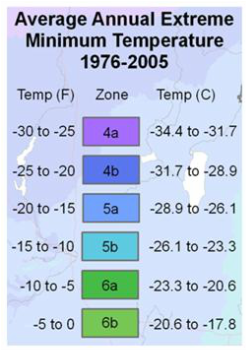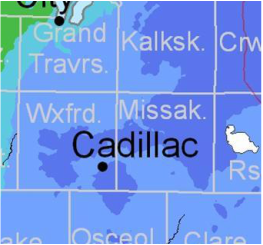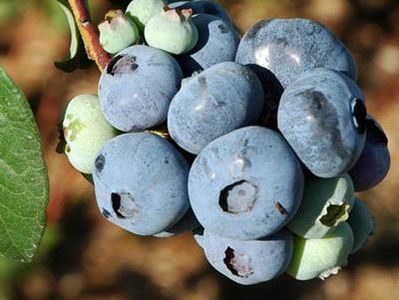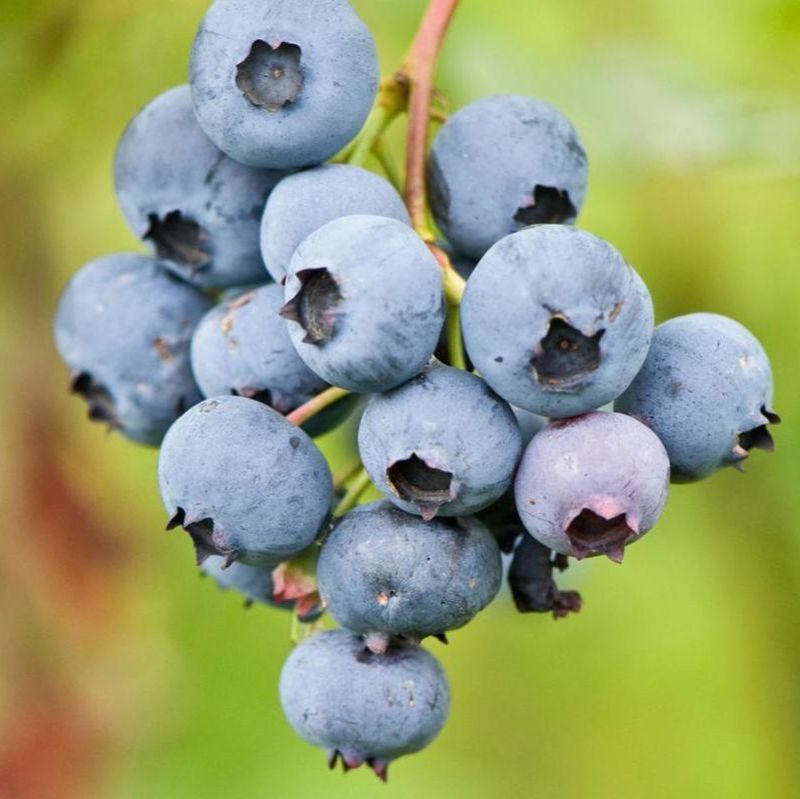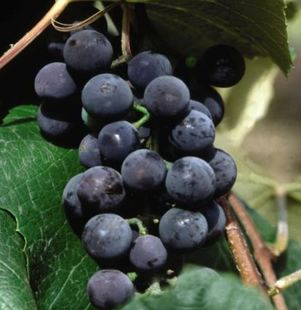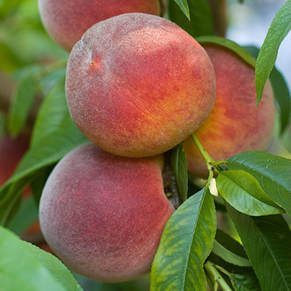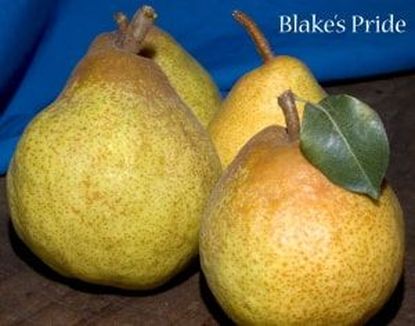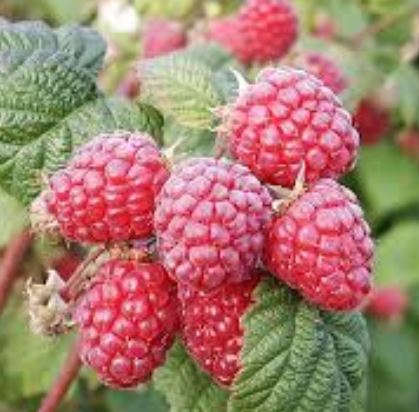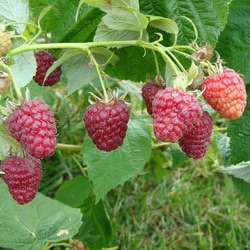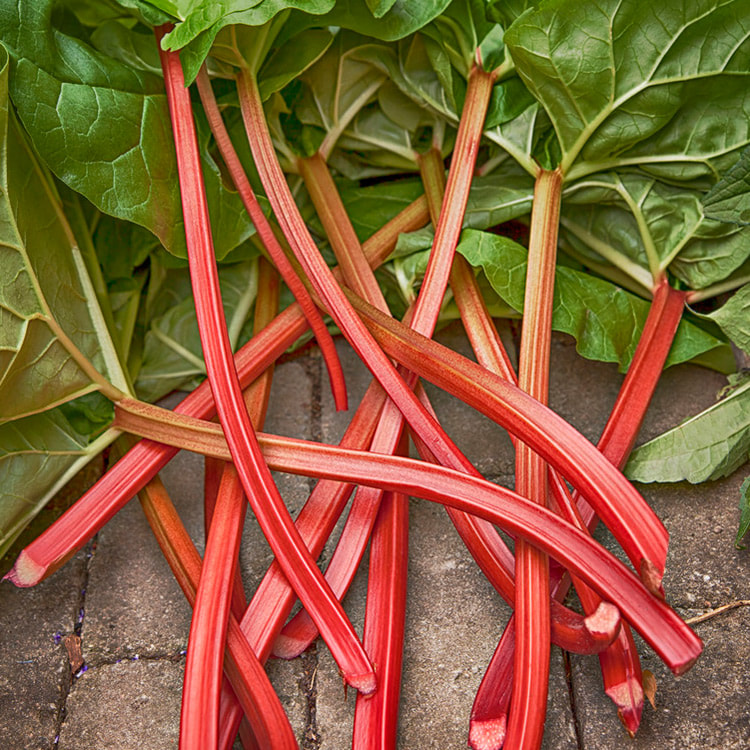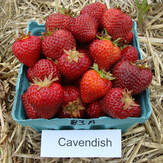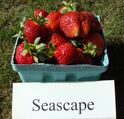Yes, you can grow a wide variety of food in Wexford County, if you are careful in selecting an appropriate
site, and select appropriate fruit and perennial vegetable varieties that are adapted to our climate.
The Wexford Conservation District sells hardy apple, cherry, peach, pear, and plum trees, along
with asparagus, blueberry, grape, horseradish, raspberry, and strawberry plants.
All of our food-producing plants are sold as bare root (not potted) plants.
site, and select appropriate fruit and perennial vegetable varieties that are adapted to our climate.
The Wexford Conservation District sells hardy apple, cherry, peach, pear, and plum trees, along
with asparagus, blueberry, grape, horseradish, raspberry, and strawberry plants.
All of our food-producing plants are sold as bare root (not potted) plants.
|
A word on hardiness -
All the fruit trees and plants that we sell are hardy to zone 4, which is the coldest zone covering Wexford County. As far as blossom hardiness, apple and pear blossoms are consistently hardy throughout the county. However, if you live in the higher elevations of the county (the darkest areas on the map at right), you are in plant hardiness zone 4B, and you may find that the blossom buds of peaches and tart cherries are sometimes killed by frost. Plums and sweet cherries bloom even earlier, and those in zone 4B will frequently lose a crop to frost. |
Apples
Apples require cross-pollination. Two different varieties with similar bloom times within 100 feet of each other to ensure a crop.
Freedom, honeygold, and Sweet Sixteen are grafted onto semi-dwarf EMLA 7 rootstock and will grow to heights of 12-15 feet. Red Duchess is on standard rootstock . Al are hardy to zone 4.
Freedom, honeygold, and Sweet Sixteen are grafted onto semi-dwarf EMLA 7 rootstock and will grow to heights of 12-15 feet. Red Duchess is on standard rootstock . Al are hardy to zone 4.
|
Crimson Crisp – Fruit is medium size, red, very crisp, and juicy. Will keep into January in cold storage. Disease-resistant to apple scab. Ripens in mid-September. $27.00 each
|
Northern Spy–An heirloom apple that is well known for making excellent pies. Very vigorous growth habit. Late bloomer. Tends to bear every other year. Ripens in late October and is a good keeper. $27.00 each
|
|
Galarina – Fruits are red and medium size. Disease-resistant to apple scab and mildew. Grower-friendly apple that stores and hangs well on the tree. Ripens in mid-October $27.00 each
Granny Smith– Fruits are light green and medium size, with a tart flavor. Great for eating, cooking, and baking. Ripens in October. $27.00 each
Honeycrisp– Medium-to-large fruits are sweet, firm, and tart, making them an ideal apple for eating raw. Ripens in mid-September to early-October. $27.00 each
Idared– Fruits are a medium non-uniform with red and green skins. The flavor is tart. Ripens in late-September. $27.00 each
|
Royal Empire – Fruits are red and medium in size. Has a sweet yet tangy flavor. Some resistance to mildew, fire blight, and rust. Ripens in September. $27.00 each
|
Apricots
Goldrich- Fruit are large, firm, and bright orange. Great for eating, drying, and cooking. Trees are hardy and productive. Requires pollination. $29 each
Asparagus
Asparagus plants are sold as dormant, bare-root crowns. They require "sweet" soil with a pH of 6.5 - 7.5.
Space plants 18-24" apart in rows that are at least 2' apart. First crops can be harvested in 2-3 years.
Space plants 18-24" apart in rows that are at least 2' apart. First crops can be harvested in 2-3 years.
Mary Washington – Is an heirloom perennial that produces green spears and is the most popular asparagus in American gardens. It has a great taste and is relatively easy to grow. Prefers soils that have been amended with organic matter so that they are evenly moist. Grows in any well-drained soil in full sun.
Purple Passion– Is a perennial that produces purple spears. It has a refined sweet flavor and becomes mildly nutty when cooked. Prefers soils that have been amended with organic matter so that they are evenly moist. Grows in any well-drained soil in full sun
Purple Passion– Is a perennial that produces purple spears. It has a refined sweet flavor and becomes mildly nutty when cooked. Prefers soils that have been amended with organic matter so that they are evenly moist. Grows in any well-drained soil in full sun
Pricing for asparagus plants:
5 plants - $10.00
10 plants - $18.00
25 plants - $38.00
50 plants - $70.00
5 plants - $10.00
10 plants - $18.00
25 plants - $38.00
50 plants - $70.00
Blueberries
These blueberry plants are bare-root plants (not in a pot). They are 12-18" tall. To produce fruit, you must plant at least two different blueberry varieties for cross-pollination. Blueberries prefer soils that are moist, with high organic matter, and with a pH close to 5.0. Space plants 5' apart in rows that are at least 6' apart.
Cherries
Cherries come in both sweet and tart (pie) varieties. Both of our cherries are self-fertile and do not need a cross pollinator. They are grafted onto Mazzard rootstock, and will grow to heights of 12 - 15'.
|
Hedelfingen Sweet Cherry – Fruits are large with dark skins. Great for eating, freezing, and canning. Ripens in mid-June. Requires pollination. $27.00 each
|
Montmorency Tart (pie) Cherry –Fruits are medium-large and bright red. Trees are a cold-hardy hybrid. Ripens in July. Self-Pollinating. $27.00 each
|
Grapes
Table grapes are a wonderful addition to your backyard fruit collestion. We offer one year old vines that are "extra" grade which means that they have a heavier, more solid root structure, and have exhibited above average growth their first year.
|
Seedless Concord
We have found a seedless version of the famous American grape with vigorous, hardy, and productive vines that produce medium sized clusters bearing large blue-black berries. Concord grapes are great for jelly, juice, and kosher wines. Will produce more than 20 pounds of fruit per vine when mature. These are 1-year old vines that are #1 grade which means that they have a 9-12" single branch or a 6-12" double branch. Give plants full sun and space them at least 8' apart. $13.00 each Seeded King of the North – A hardy medium size blue grape with productive vines. Great for juice, jelly, and wine making. Fruits are juicy and tart. Ripens in early September. Resistant to common grape diseases and insects. Give plants full sun and space them at least 8’ apart. Price is $13 per plant. |
Horseradish
Horseradish is a perennial root vegetable with a large-white tapered root. It is cultivated primarily for its root. Harvesting is best done in fall, winter, or spring. Months that have an “r” in it: September to April.
Price is $6 per plant or $23 for five.
Horseradish is a perennial root vegetable with a large-white tapered root. It is cultivated primarily for its root. Harvesting is best done in fall, winter, or spring. Months that have an “r” in it: September to April.
Price is $6 per plant or $23 for five.
Peaches
Our peach trees are grafted onto seedling rootstock, and will grow to a height of 12 - 15'.
Peaches are self-fertile and do not require cross pollination.
Peaches are self-fertile and do not require cross pollination.
|
Elberta – Sweet, juicy, full-flavored, heirloom, free-stone peach suitable for all uses. Ripens in early September. Hardy to zone 5. $28.00 each
Redheaven –Developed by MSU in the 1940’s. Freestone and good for fresh eating as well as preserving. Resistant to bacterial spot, but susceptible to other peach diseases. Hardy to zone 5. Ripens in mid to late August. $28.00 each
CoralStar – Fruits are large, freestone, with pinkish red skin over yellow. Shows resistance to bacterial spot and canker. Ripens in late-August. $28.00 each
|
Pears
Pears require cross pollination - be sure to plant two compatible varieties.
Blake's Pride and Beurre D'Anjou varieties will pollinate each other.
Blake's Pride and Beurre D'Anjou varieties will pollinate each other.
|
Hardy– Fruits are medium in size and have a rusted greenish-yellow skin. The tree is very hardy. Good resistance to scab. $28.00 each
|
Bartlett – Originally discovered in England in 1765, it is now considered the classic American pear. Suitable for both fresh eating and canning. Ripens in mid-September. $28.00 each
|
Plums
Methley- Fruits are red and medium in size. Resistance to fungal diseases and is drought tolerant. Ripens in mid-July. Self-Pollinating. $29.00 each
Stanley- The flesh is yellow, juicy, and of good quality. This variety is self-fruitful and does not require a pollinator. In some years, it tends to over-bear and will benefit from thinning. Self-Pollinating. $29.00 each
Stanley- The flesh is yellow, juicy, and of good quality. This variety is self-fruitful and does not require a pollinator. In some years, it tends to over-bear and will benefit from thinning. Self-Pollinating. $29.00 each
Raspberries
Raspberries will thrive in sandy soils, but are prone to disease in heavy or wet soils. We sell dormant, bare-root plants.
Trellising is recommended for all raspberries. Space rows at least 5' apart.
Red raspberries should be spaced 2' apart in rows. Black raspberries should be spaced 3' apart in rows.
Trellising is recommended for all raspberries. Space rows at least 5' apart.
Red raspberries should be spaced 2' apart in rows. Black raspberries should be spaced 3' apart in rows.
|
Killarney
A red raspberry with good flavor and is especially winter hardy. Fruit ripens in early August. 1 plant - $8.00 5 plants - $27.00 10 plants - $40.00 25 plants - $85.00 |
Joan J
One of the earliest fruiting of the fall raspberries. Produces large berries with great flavor on thorn-less canes. Fruit ripens in early September. 1 plant - $8.00 5 plants - $27.00 10 plants - $40.00 25 plants - $85.00 |
|
Double Gold
Is medium in size and is a deep blush, golden-yellow champagne color. Fruit ripens in late August through October. 1 plant - $9.00 5 plants - $35.00 10 plants - $60.00 25 plants - $115.00 |
Royalty
Is a purple raspberry with large and high-quality fruits. Fruits ripens in August. 1 plant - $9.00 5 plants - $35.00 10 plants - $60.00 25 plants - $115.00 |
Strawberries
Strawberries grow best in well-drained soils rich in organic matter. Plants should be space 18" apart, with at least 3' between rows. June-bearing varieties produce one crop in early summer. Day-neutral varieties will flower continuously and produce fruit throughout the summer. We carry two varieties of June-bearing strawberries so that you can harvest fruit for a full month or more as well as day neutral varieties that will produce berries all summer.
Prices for strawberry plants:
5 plants - $4.00 10 plants - $8.00 25 plants - $17.00 50 plants - $28.00
5 plants - $4.00 10 plants - $8.00 25 plants - $17.00 50 plants - $28.00
